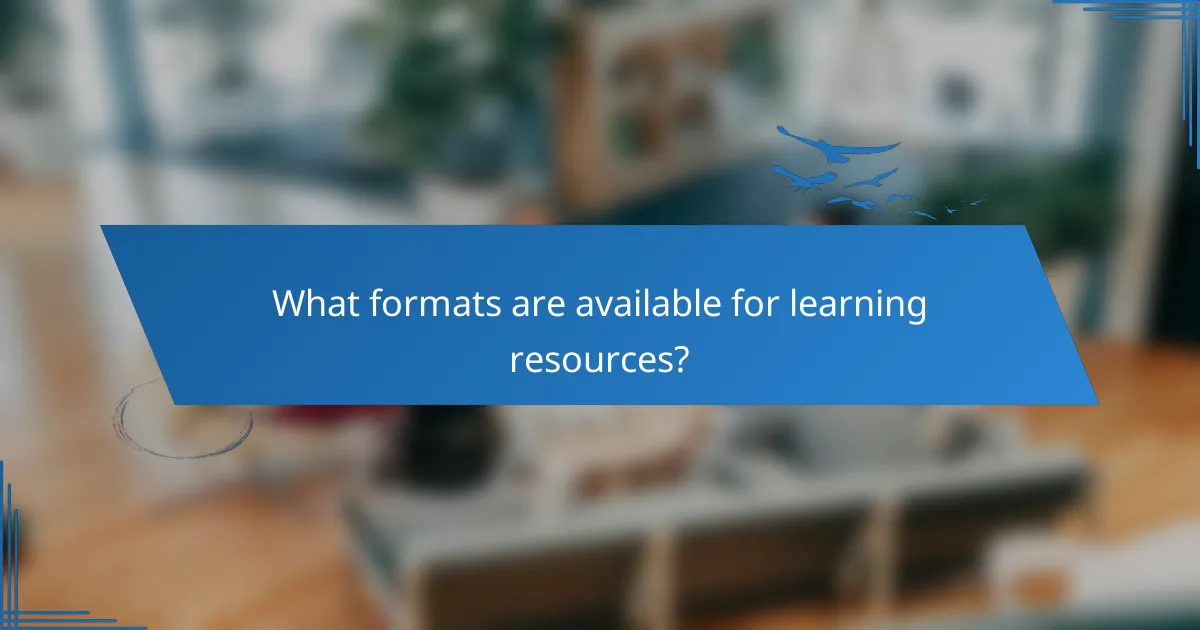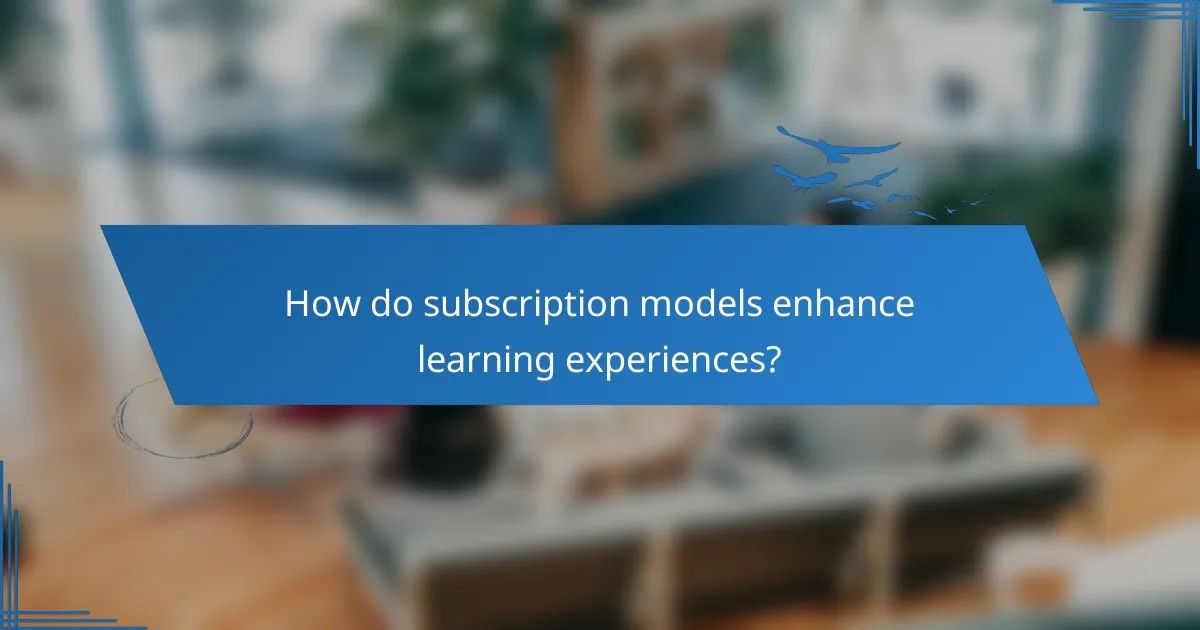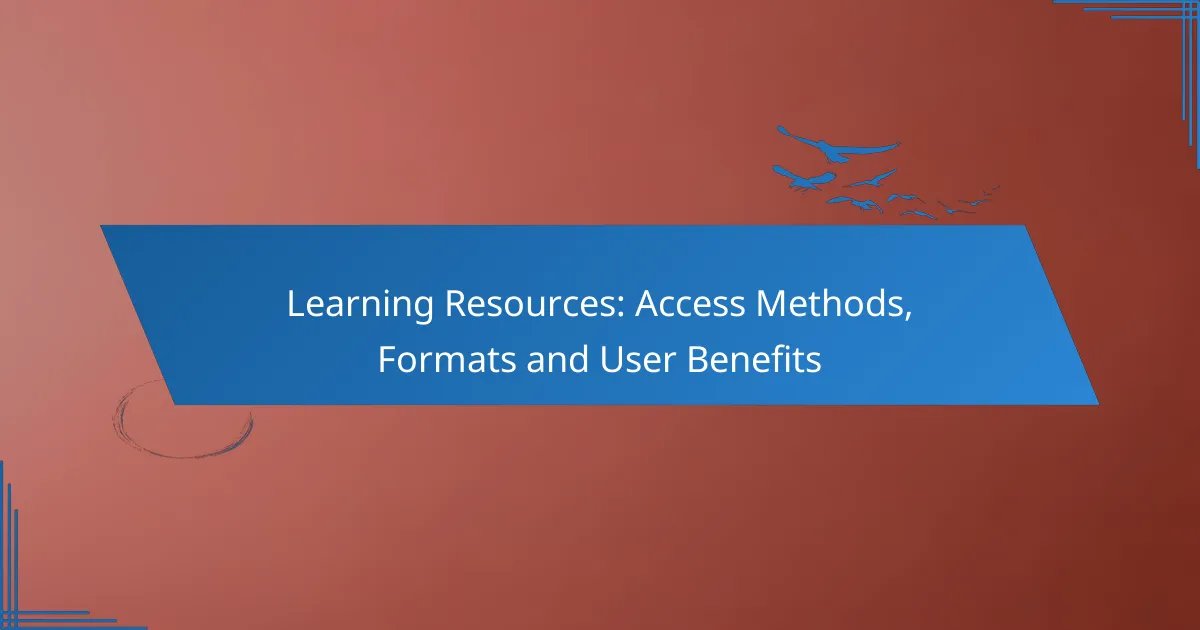In the UK, learners can access a diverse array of resources through online platforms, libraries, university subscriptions, and community programs. Each access method presents distinct benefits and formats, allowing individuals to select the most suitable options for their educational journey. By understanding these resources and their advantages, learners can effectively enhance their knowledge and skills in a way that aligns with their personal preferences and goals.

How can you access learning resources in the UK?
In the UK, learning resources can be accessed through various channels, including online platforms, local libraries, university subscriptions, and community education programs. Each method offers unique benefits and formats that cater to different learning preferences and needs.
Online platforms like Coursera
Online platforms such as Coursera provide a wide range of courses from universities and institutions worldwide. Users can enroll in courses for free or pay for certifications, allowing flexibility in learning at their own pace.
When using Coursera, consider the course duration, which typically ranges from a few weeks to several months. Look for courses that offer peer interaction and assessments for a more engaging experience.
Local libraries offering digital access
Many local libraries in the UK offer digital access to learning resources, including e-books, audiobooks, and online courses. Membership is usually free or involves a nominal fee, providing a cost-effective way to access a wealth of information.
Check with your local library for specific digital offerings and platforms they support, such as OverDrive or Libby, which allow users to borrow materials online easily.
University subscription services
Universities in the UK often provide subscription services that grant students access to a variety of academic journals, databases, and e-books. These resources are typically included in tuition fees, making them a valuable asset for students.
Students should familiarize themselves with their university’s library portal to maximize the benefits of these subscriptions. Look for guides or workshops that explain how to navigate these resources effectively.
Community education programs
Community education programs offer accessible learning opportunities for individuals of all ages. These programs often include workshops, classes, and seminars that focus on practical skills and personal development.
To find community education programs, check local council websites or community centers. Many programs are low-cost or free, making them an excellent option for those looking to enhance their skills without significant financial investment.

What formats are available for learning resources?
Learning resources come in various formats, each offering unique benefits and methods of engagement. Understanding these formats can help you choose the most effective way to enhance your knowledge and skills.
Video lectures on platforms like Udemy
Video lectures are a popular format for online learning, especially on platforms like Udemy. They typically feature instructors presenting material in a structured manner, often supplemented with visual aids and demonstrations.
When choosing video lectures, consider the course ratings, instructor experience, and the depth of content covered. Many courses allow for lifetime access, enabling you to learn at your own pace.
Interactive eBooks from publishers
Interactive eBooks provide a dynamic learning experience, combining text, images, and multimedia elements. These resources often include quizzes, hyperlinks, and embedded videos to enhance understanding.
Look for eBooks that offer features like annotation tools and progress tracking. They are available across various subjects and can be a cost-effective alternative to traditional textbooks.
Podcasts focusing on educational topics
Podcasts are an accessible format for learning, allowing you to absorb information while multitasking. Many educational podcasts cover a wide range of topics, featuring expert interviews and discussions.
To maximize benefits, choose podcasts that align with your interests and learning goals. Regular listening can reinforce concepts and introduce new ideas in a convenient format.
Webinars hosted by experts
Webinars are live online seminars that allow for real-time interaction with experts. They often include presentations followed by Q&A sessions, providing an opportunity to engage directly with the material and the presenter.
When attending webinars, check for registration fees and time zones, as some may require payment or occur at specific times. Participating in these sessions can deepen your understanding and provide networking opportunities.

What are the user benefits of accessing learning resources?
Accessing learning resources offers numerous benefits, including flexibility, a wide range of subjects, affordability, and expert guidance. These advantages empower learners to tailor their educational experiences to fit their individual needs and goals.
Flexible learning schedules
Flexible learning schedules allow users to engage with educational materials at their convenience. This adaptability is especially beneficial for those balancing work, family, or other commitments, enabling them to learn at their own pace.
Many platforms offer on-demand courses, allowing learners to start and stop lessons as needed. This structure can lead to improved retention and understanding, as users can revisit complex topics whenever they choose.
Diverse subject matter availability
Access to a diverse range of subjects is a significant advantage of online learning resources. Users can explore topics from traditional academics to niche interests, ensuring they find content that resonates with their personal or professional aspirations.
For example, platforms often provide courses in technology, arts, health, and business, catering to various learning preferences. This variety encourages lifelong learning and skill development across multiple disciplines.
Cost-effective subscription models
Many learning resources utilize cost-effective subscription models, making education more accessible. Users can often access a vast library of courses for a monthly or annual fee, which is typically lower than traditional tuition costs.
These models may include options like free trials or tiered pricing, allowing users to choose plans that best fit their budget. This affordability can significantly reduce financial barriers to education.
Access to expert instructors
Access to expert instructors is another key benefit of online learning resources. Many platforms feature courses taught by industry professionals or academics, providing learners with valuable insights and real-world applications of their studies.
Students can often interact with instructors through forums or live sessions, enhancing the learning experience. This direct access to expertise can lead to better understanding and networking opportunities within specific fields.

What criteria should you consider when choosing learning resources?
When selecting learning resources, consider factors such as the platform’s reputation, the quality of content and instructors, and user reviews and ratings. These criteria can significantly influence your learning experience and outcomes.
Reputation of the platform
The reputation of a learning platform can indicate its reliability and the quality of its offerings. Look for platforms that are well-known in the educational community or have partnerships with reputable institutions.
Research the platform’s history, user base, and any awards or recognitions it has received. A strong reputation often correlates with a commitment to high standards and effective learning experiences.
Quality of content and instructors
Assessing the quality of content and instructors is crucial for effective learning. High-quality resources should be up-to-date, relevant, and engaging, while instructors should have expertise and experience in their subject areas.
Check if the platform provides sample lessons or previews of the content. This can help you gauge the teaching style and material quality before committing to a course.
User reviews and ratings
User reviews and ratings provide valuable insights into the effectiveness of learning resources. Look for platforms that display user feedback prominently, as this can help you understand the strengths and weaknesses of specific courses.
Pay attention to both positive and negative reviews, as they can highlight potential issues or advantages. A platform with consistently high ratings and positive feedback is likely to offer a better learning experience.

How do subscription models enhance learning experiences?
Subscription models enhance learning experiences by providing users with continuous access to a wide range of educational resources for a fixed fee. This approach allows learners to explore various subjects without the financial burden of purchasing individual courses.
Unlimited access to a variety of courses
With subscription models, learners gain unlimited access to numerous courses across different fields, from technology to arts. This flexibility encourages exploration and helps users discover new interests or skills without additional costs.
For instance, platforms like Coursera or Udemy offer subscriptions that allow users to take multiple courses simultaneously. This can be particularly beneficial for those who want to learn at their own pace or juggle multiple subjects.
When choosing a subscription service, consider the breadth of course offerings and the quality of content. Look for platforms that provide user reviews and ratings to ensure a valuable learning experience.
